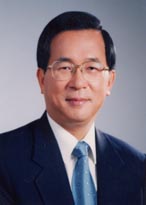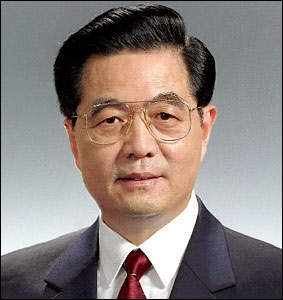China dangles carrot for support on the Taiwan issue


Taiwan is at the heart of the current Seychelles-China diplomatic relations. This is what finally transpired after the Chinese President Hu Jintao left Seychelles in the early hours of the evening last Saturday. The cat was let out of the bag by President Michel during a press conference reported on by SBC, the state-controlled broadcasting media. Mr Michel told the press that Seychelles supports the one-China two systems policy because Taiwan is part of China. This is in effect an international diplomacy statement on a Chinese domestic issue.
Yet when our editor asked President Michel, at his press conference, if he had made any approaches to the Chinese leader on behalf of the Catholics of Seychelles who sympathise with their fellow Catholics in China, and the fact that China has refused to recognise the Vatican (which, in international diplomacy terms, is a sovereign state and recognised by Seychelles) Michel replied that this is purely an internal matter for China. This smacks of a double standard.
Mr Michel is, of course, no stranger to the issue of non-interference in the internal affairs another country. He personally benefited immensely from the “interference” of Tanzanian troops in Seychelles to support the coup d’etat in 1977, and prior to that, giving him military training in Dar-Es-Salaam to overthrow the legal government of Seychelles.
The Taiwan issue admittedly is quite complex. Taiwan was colonised by the Japanese at the start of the 20th Century and was finally “liberated” when Japan surrendered to the Americans in 1945. In 1949, a remnant of the defeated army of General Chiang Kai Shek occupied Taiwan and set up what was called the government of the Republic of China (ROC), as opposed to the victorious Communist Party on the mainland, which set up the government of the People’s Republic of China (PRC) based in Beijing.
The victorious powers of the Second World War (America, the Soviet Union, Britain and France), however, decided to recognise the government of General Chiang Kai Shek in Taipei on Taiwan (ROC) as the sole legitimate government of the whole of China, with a permanent seat and the right of veto in the UN Security Council. But in 1972 US President Richard Nixon decided that the PRC’s claim to be the legitimate representative of China in the UN would not be vetoed. Hence, the ROC was expelled from the UN to be replaced by the PRC with the right of veto in the Security Council.
As a rearguard measure the ROC government under the Kuomintang (the party of Chang Kai Shek) embarked on a major diplomatic campaign to win official recognition from other members of the UN for it to be reinstated in the UN as a separate member, in the same way that East Germany and West Germany were, and North and South Korea is at the moment, since both the ROC and the PRC claim they stood for re-unification of the two Chinas. The PRC, however, maintains there is only one China, represented by its Government in Beijing and that Taiwan is a renegade province.
The matter has, however, become more complicated. Since the advent of democracy in Taiwan, a new party has emerged which claims that Taiwan was never part of mainland China, so has a right to its independence. This party claims that Taiwan was populated by indigenous inhabitants who became Chinese citizens as a result of the occupation by the remnants of the Nationalist army. The new party campaigned and won two presidential elections under its leader, Chen Shiu Bian, although he – despite the rhetoric – has been unable to declare independence. China has threatened military retaliation if Taiwan declares independence. And it made clear that any diplomatic recognition of the government in Taipei at any time by any country would result in a break of diplomatic relations with PRC. The Kuomingtang party, which is now in opposition, believes in the one-China two systems but will not re-unify Taiwan with China until the whole of China becomes a multiparty democracy.
Taiwan is the 15th largest trading “nation” in the world. It has one of the largest foreign currency reserves. It is an industrial giant. 18 of the world’s largest companies are Taiwanese. Taiwan produces 90% of the laptops sold all over the world. Taiwanese businessmen have been the first to invest in China and have made billions of dollars worth of investments. Taiwan is believed to offer massive economic and financial aid in return for diplomatic recognition. In all, 24 countries have diplomatic relations with Taiwan, especially from Latin America. It includes a number of island states in the Caribbean and the Pacific. Only four countries in Africa still have diplomatic relations with Taiwan – Burkina Faso, Gambia, Malawi and Swaziland.
President Michel has also said, in his public statement, that PRC (China) has promised to make available up to 300 million Yuan in soft loans to Seychelles. The fact that the delegation made no public announcement on it leaves room for much speculation. Is this China’s version of the dangling of the diplomatic carrot? Don’t even think about crossing us on the Taiwan issue? We can give you as much as Taiwan can give you? Michel, naturally, would love to have his hands on all that money right away, especially as the foreign exchange crisis is getting worse. 300 million Yuan is less than 300 million rupees at current exchange rate, less than a quarter of the budget. But China has not said whether the money will be for Mr Michel to use at his pleasure or that it will be disbursed this year.



